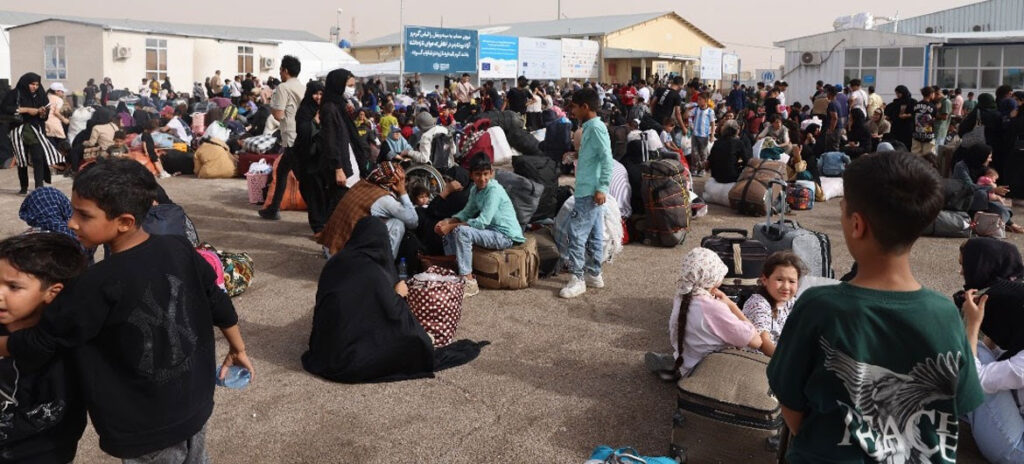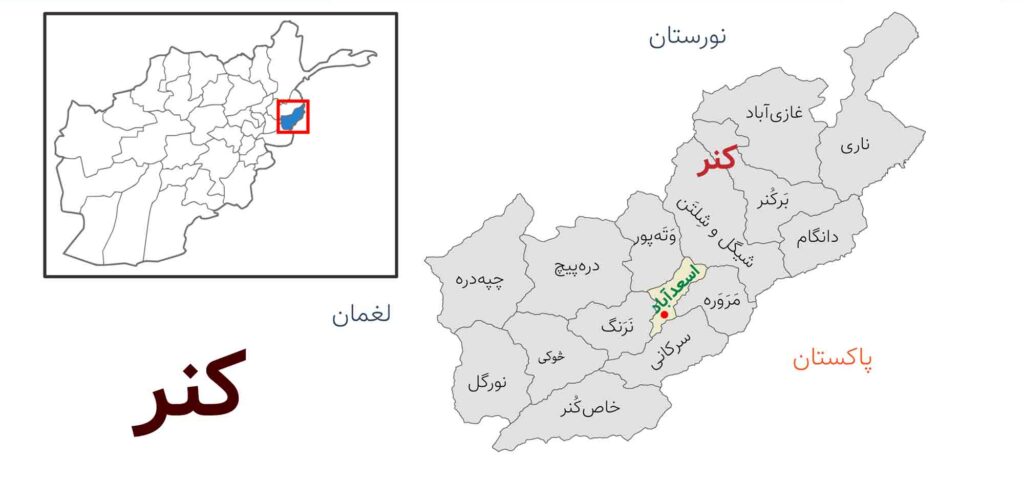
The Situation of Vulnerable Families and Recently Returned Migrants in Herat Province
Focus: Winter Season and Food Crisis
Prepared by: Ali Ahmad Abbasi
Date: Tuesday, 7 October 2025 (15 Mizan 1404)
1. Background
This field report aims to assess the economic, health, educational, social awareness, and living conditions of poor families and recently returned migrants in Herat Province, with a special focus on the food crisis, heating challenges during winter, and shortage of medical facilities.
The primary objective of this report is to mobilize humanitarian support and charitable assistance for these vulnerable groups particularly for female-headed households and orphans—through immediate and effective relief interventions.
2. Methodology
The assessment was conducted through direct field visits and interviews with poor families and recently returned migrants across various districts and urban areas of Herat.
Data collection focused on the following indicators:
Household economic status and income sources
Access to food and nutrition
Health conditions and access to medical services
Children’s education and school attendance
Women’s awareness and household roles
Housing conditions and heating arrangements
Direct observations revealed severe shortages of food, exposure to cold weather, inadequate heating equipment, and the resulting health and livelihood impacts on affected families.
3. Key Findings
All ethnic communities surveyed were found to be in need of assistance; however, the Hazara community has been disproportionately affected and requires urgent humanitarian support.
The Hazaras are settled in 23 different areas across Herat Province and face acute challenges including inadequate shelter, limited access to medical care, and severe food insecurity.
Many families and recently returned migrants suffer from a lack of food and essential household items, with children, the elderly, and female-headed households being the most affected.
Extreme poverty prevents families from purchasing fuel, heaters, blankets, warm clothing, and sufficient food for the coming winter.
Children are especially vulnerable to hunger and cold, and many have dropped out of school due to malnutrition and lack of warm clothing.
Women, especially widows and single mothers, face significant challenges in managing households, providing food, and protecting their families against harsh weather conditions.
Recently returned migrants, living mostly in informal settlements and temporary shelters on the outskirts of Herat, face serious risks of hypothermia, illness, and hunger, and are in urgent need of shelter, food, and winterization support.
Elderly people and patients with chronic illnesses are at heightened risk due to the lack of medicine and access to health services.

4. Conclusions and Recommendations
The combined winter and food crises have critically worsened the situation of poor families and recently returned migrants in Herat Province. The Hazara community, in particular, requires immediate and prioritized assistance.
Urgent Recommended Interventions:
Provision of emergency food packages including flour, rice, oil, and other essential food items.
Distribution of heating equipment, blankets, and winter clothing for vulnerable families.
Delivery of essential medical aid and health services for children, elderly, and patients at risk of malnutrition and cold-related diseases.
Support for children’s education through the supply of school materials and warm uniforms.
Implementation of awareness and skill development programs for women to enhance family resilience and self-reliance.
Establishment of temporary shelters and protection centers for recently returned migrants.
5. Summary and Call to Action
We stand ready to serve as a link between vulnerable communities, returnee families, and humanitarian organizations, ensuring that assistance is delivered transparently, effectively, and with dignity to those most in need.
We sincerely call upon all charitable institutions and humanitarian actors to join efforts in reducing human suffering, protecting families’ health and nutrition during winter, and empowering women and children—particularly among the Hazara community in Herat Province, Afghanistan.

گزارش میدانی وضعیت خانوادههای نیازمند و مهاجرین تازه برگشته از ایران به وطن در ولایت هرات
تمرکز: فصل زمستان و بحران غذایی
تهیهکننده: علی احمد عباسی
تاریخ: سهشنبه، ۱۵ میزان ۱۴۰۴ (۷ اکتبر ۲۰۲۵)
۱. پیش زمینه
این گزارش میدانی با هدف بررسی وضعیت اقتصادی، صحی، آموزشی، آگاهی اجتماعی و شرایط زندگی خانوادههای فقیر و مهاجرین تازهبرگشته به وطن در ولایت هرات تهیه شده است. تمرکز ویژه گزارش بر بحران غذایی، مشکلات گرمایشی در فصل زمستان و کمبود امکانات درمانی است
هدف اصلی این گزارش، جلب همکاری نهادهای خیریه و سازمانهای بشردوستانه برای کمکرسانی فوری و مؤثر به قشرهای آسیبپذیر، بهویژه خانوادههای بیسرپرست و مهاجرین تازهبرگشته میباشد
۲. روش کار
ارزیابی حاضر بهصورت میدانی و از طریق گفتوگو و دیدار مستقیم با خانوادههای نیازمند و مهاجرین در نواحی مختلف شهر و ولسوالیهای ولایت هرات انجام شده است.
در گردآوری اطلاعات، شاخصهای زیر مدنظر قرار گرفت:
وضعیت اقتصادی و معیشتی
دسترسی به مواد غذایی و تغذیه
شرایط صحی و دسترسی به مراکز درمانی
وضعیت آموزشی کودکان
آگاهی و نقش زنان در خانواده
شرایط مسکن و وسایل گرمایشی
در جریان این بازدیدها، مشاهدات عینی از کمبود شدید غذا، سرمازدگی، نبود وسایل گرمایشی و پیامدهای مستقیم آن بر سلامت و معیشت مردم ثبت گردیده است
۳. یافتههای کلیدی
تمام اقوام ساکن در مناطق مورد بررسی نیازمند کمکهای فوری هستند، اما قوم هزاره در مقایسه با دیگر اقوام آسیب بیشتری دیده و به حمایت عاجلتری نیاز دارد
هزارهها در ۲۳ منطقه مختلف ولایت هرات پراکندهاند و با مشکلات جدی در زمینه سرپناه، دسترسی محدود به خدمات درمانی و کمبود شدید مواد غذایی مواجهاند
بسیاری از خانوادهها و مهاجرین تازهبرگشته از نبود مواد اولیه خوراکی و منابع درآمد رنج میبرند؛ در این میان، سالمندان، کودکان و خانوادههای بیسرپرست بیشترین آسیب را متحمل میشوند
فقر شدید باعث شده است که خانوادهها توانایی تهیه سوخت، بخاری، پتو، لباس گرم و مواد غذایی کافی برای زمستان را نداشته باشند
کودکان در معرض خطر گرسنگی و سرمازدگی قرار دارند و بسیاری به همین دلیل از رفتن به مکتب بازماندهاند.
زنان، بهویژه بیسرپرستها، در تأمین نیازهای اساسی خانواده و حفاظت از اعضا در برابر سرما با چالش جدی روبهرو هستند
مهاجرین تازهبرگشته که در مناطق حاشیهای و بدون سرپناه زندگی میکنند، با خطر جدی سرمازدگی، بیماری و گرسنگی مواجهاند و نیاز فوری به پناهگاه، غذا و کمکهای زمستانی دارند
بیماران مزمن و ناتوانان در نبود دارو و خدمات صحی در معرض خطر مرگومیر فصلی هستند
۴. نتیجه و درخواستها
بحران زمستانی و بحران غذایی در ولایت هرات، وضعیت خانوادههای فقیر و مهاجرین تازهبرگشته را به مرحلهای بحرانی رسانده است. بهویژه قوم هزاره نیازمند توجه و حمایت فوری نهادهای خیریه و سازمانهای بشردوستانه است
: اقدامات عاجل پیشنهادی
تأمین بستههای غذایی اضطراری شامل آرد، برنج، روغن و مواد غذایی اساسی
توزیع وسایل گرمایشی، پتو و لباس زمستانی برای خانوادههای نیازمند
ارائه خدمات صحی و دارویی فوری برای بیماران، کودکان و سالمندان
حمایت از آموزش کودکان از طریق تهیه لوازم تحصیلی و پوشاک مناسب.
اجرای برنامههای آگاهیدهی و مهارتآموزی برای زنان جهت توانمندسازی اقتصادی
فراهمسازی پناهگاههای موقت و اضطراری برای مهاجرین تازهبرگشته
۵. جمعبندی
ما آمادگی کامل داریم تا بهعنوان پل ارتباطی میان مردم نیازمند، مهاجرین آسیبپذیر و نهادهای خیریه و بشردوستانه عمل کنیم تا کمکها بهصورت شفاف، مؤثر و انسانی به دست مستحقان واقعی برسد
با امید به همکاری نهادهای محترم در جهت کاهش دردها، محافظت از سلامت و تغذیه خانوادهها در فصل زمستان، و توانمندسازی زنان و کودکان — بهویژه در میان قوم هزاره — در ولایت هرات، افغانستان
6.0-magnitude earthquake that struck Kunar
As this newsletter was being prepared, the number of casualties continued to rise and aftershocks were still being felt following a 6.0-magnitude earthquake that struck Kunar and Nangarhar provinces shortly before midnight on 31 August. The quake was both strong and shallow, leveling entire villages and leaving many others severely damaged across the mountainous area. According to the Emirate, 100 million afghanis (around USD 1.5 million) have been allocated for emergency response, with search and rescue teams deployed alongside heavy machinery to clear landslide-blocked roads, while helicopters are evacuating those injured.

